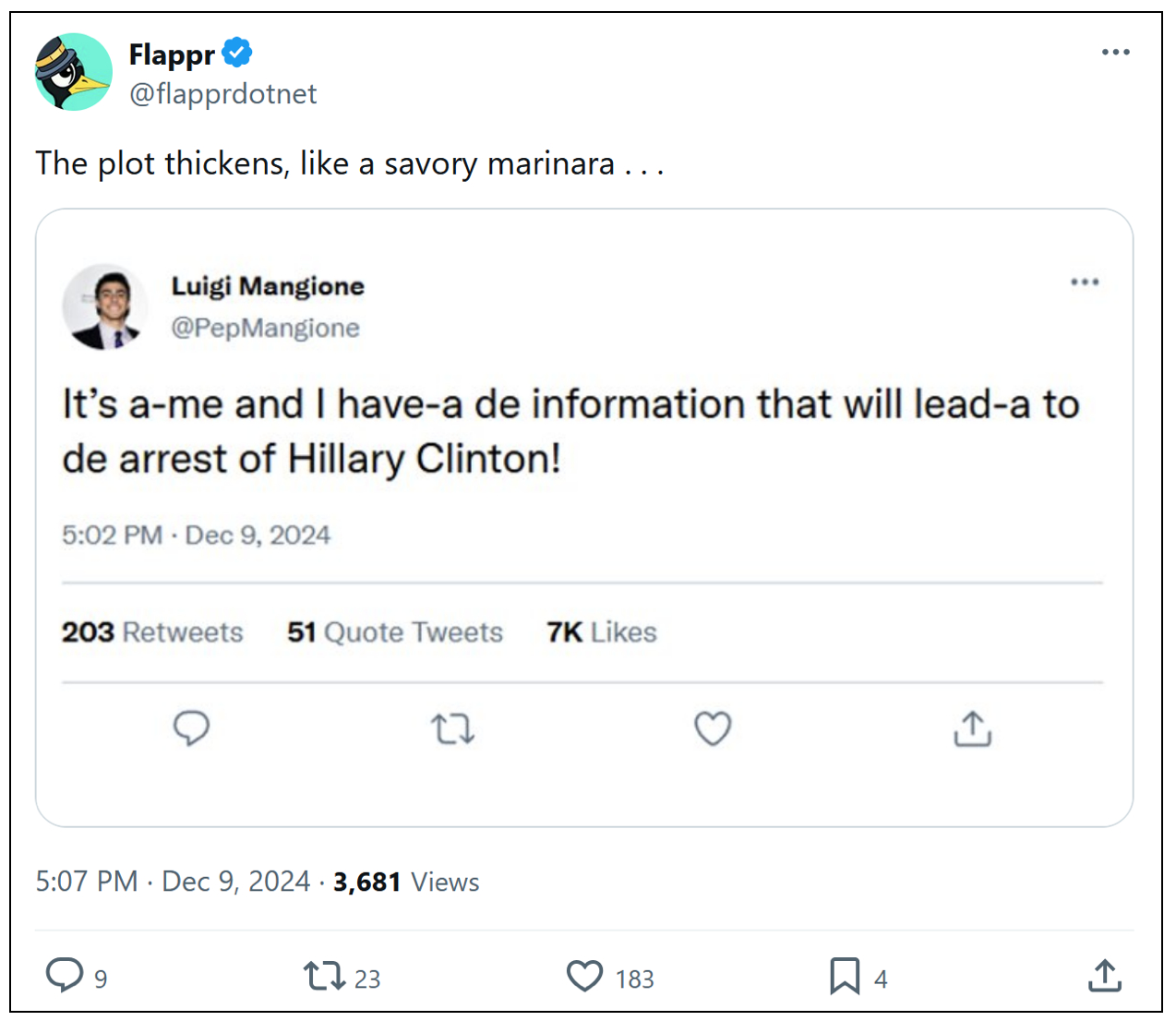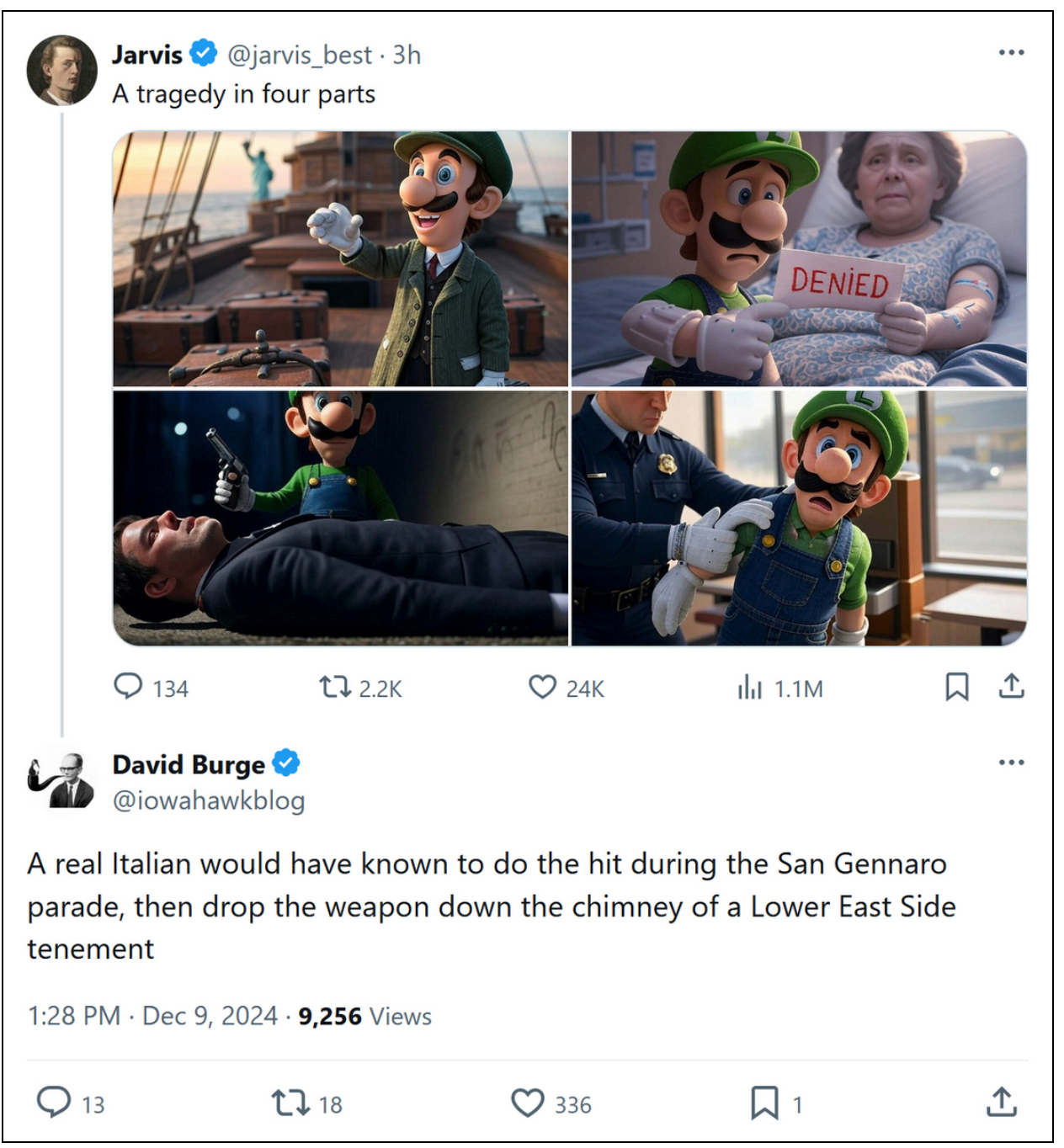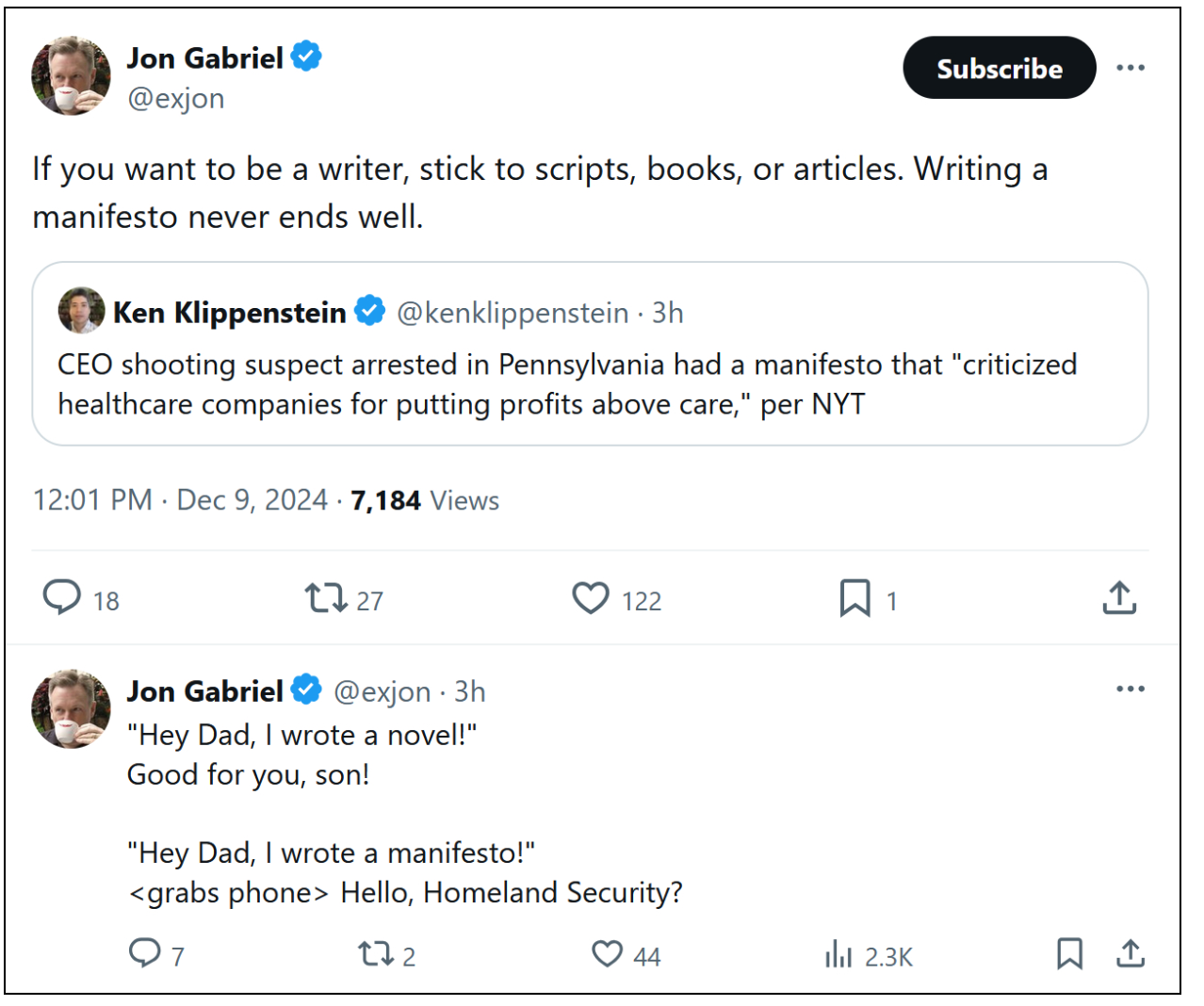UnitedHealthcare CEO fatally shot
-
@jon-nyc said in UnitedHealthcare CEO fatally shot:
It'll be Bragg prosecuting him.
There are rumors of Federal Charges.
His term ends on Dec 31, 2025. Magnione won't see a courtroom before then.
Do you think he'll be re-elected?
@George-K said in UnitedHealthcare CEO fatally shot:
@jon-nyc said in UnitedHealthcare CEO fatally shot:
It'll be Bragg prosecuting him.
There are rumors of Federal Charges.
I suspect they'd need terrorism charges to do that. Which I think are appropriate.
-
@George-K said in UnitedHealthcare CEO fatally shot:
@jon-nyc said in UnitedHealthcare CEO fatally shot:
It'll be Bragg prosecuting him.
There are rumors of Federal Charges.
I suspect they'd need terrorism charges to do that. Which I think are appropriate.
@jon-nyc said in UnitedHealthcare CEO fatally shot:
I suspect they'd need terrorism charges to do that.
Yeah, that's what I've heard.
Which I think are appropriate.
Howso? It was a targeted murder of a businessman, of course. How's that terrorism?
-
I haven't taken a dive into what is purported "manifesto", but is it politically motivated?
The guy who was lurking at the golf course waiting for President-Elect Trump - would that qualify as terrorism? I would think so. Was he charged with that? I honestly don't know.
-
@jon-nyc said in UnitedHealthcare CEO fatally shot:
It'll be Bragg prosecuting him.
There are rumors of Federal Charges.
His term ends on Dec 31, 2025. Magnione won't see a courtroom before then.
Do you think he'll be re-elected?
@George-K said in UnitedHealthcare CEO fatally shot:
There are rumors of Federal Charges.
https://www.nationalreview.com/corner/charging-the-murderer-of-the-unitedhealthcare-ceo/
If I were the United States attorney in my old haunts, the Southern District of New York (SDNY) in Manhattan, I’d be looking to charge the suspect federally.
My default setting is that murder is a state crime and ought to be prosecuted by state authorities. State and municipal prosecutors and cops — here, Bragg and the NYPD — are responsible for the public interest that is most at stake: order and security within the city and borough. They also have the most straightforward criminal statutes — in this instance, state homicide laws — to address this violent street crime with the appropriate degree of severity.
By contrast, federal prosecutors do not have jurisdiction over violent crime, including murder, unless Congress has codified an offense based on some federal interest. The classic federal interest — protection of federal officials from being assassinated while performing their official duties — does not apply to Brian Thompson’s murder. Besides attacks on federal officials and property, the usual federal interest that Congress invokes in the criminal law is interstate commerce.
It would not surprise me, though, if President-elect Trump’s nominees to run the Justice Department, the SDNY, and the FBI are taking a hard look at the Travel Act, an old standby in organized-crime prosecutions codified in Section 1952 of the federal penal code. The Travel Act makes it a crime to, among other things, travel or use facilities in interstate commerce in order to commit a crime of violence, including murder, that furthers some other unlawful activity. If death results, the potential penalty is life imprisonment. (The statute is layered and complicated because Congress was mindful to avoid federalizing every violent street crime.)
If Mangione is the assailant (and to repeat, he has not been charged as of this writing), it would seem simple enough to allege that he traveled in interstate commerce to carry out a murder. The question for federal prosecutors and the FBI would be whether the murder furthered some other unlawful activity — e.g., some organized scheme to extort health insurers to change their practices.
One other advantage the feds have: New York’s doctrine of equitable double jeopardy.
In most states, when the feds and the state authorities both have jurisdiction over a violent crime, they can both prosecute it. In our federalist system, the federal government and the states are both sovereign. Under the dual-sovereignty doctrine, there is no double jeopardy protection from a prosecution by one sovereign after another sovereign has already prosecuted the same defendant for the same crime.
In New York, however, if the federal government brings a case, state law precludes state authorities from prosecuting state offenses arising out of the same criminal transaction (there are some exceptions, but they are narrow and tough for state prosecutors to exploit).
Hence, if the Justice Department were to try to bring a murder case on a Travel Act theory, or something like it, federal prosecutors have to get it right. If they move in to take this case and they lose it in the end, state prosecutors would probably have no recourse — regarding a murder on the streets of Manhattan captured on video, against a suspect who appears to be buried in incriminating evidence.
The feds could keep their powder dry, watch how Bragg handles things, and proceed if he does something outrageous. On the other hand, if they’re going to move, the feds will want to do so now, while they might still have a chance to control the course of the investigation.
Tough call.
-
@89th said in UnitedHealthcare CEO fatally shot:
OMG he lives 3 blocks away from me!
Kidding.
His house, though:

It’s nice, but not exactly what you would expect from a guy heading up one of the largest insurance rackets in the US. I mean, isn’t he supposed to be living large in huge mansion with 4 outdoor pools (and 1 indoor) on 10 acres with a gated entry?
-
Ahhh, @89th had mentioned living close to the CEO. I haven’t had my coffee yet… that’s what you get…



